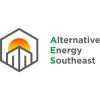New Jersey Community Solar Rules - Remote Net Metering
New Jersey's community solar program is governed by the Solar Act of 2021 (L. 2021, c. 169) which established a new Successor Solar Incentive Program, also known as the “SuSI Program”. The SuSI Program implements the Clean Energy Act of 2018 (L. 2018, c.17) and the Solar Act of 2021 (L. 2021, c. 169). The SuSI Program provides incentives to eligible solar facilities to enable the continued efficient and orderly development of solar renewable energy generating sources throughout the state.
The program provides one New Jersey Solar Renewable Energy Certificate-II (NJ SREC–II) for every megawatt-hour (MWh) of solar electricity produced
- Read more about New Jersey Community Solar Rules - Remote Net Metering
- Log in or register to post comments

